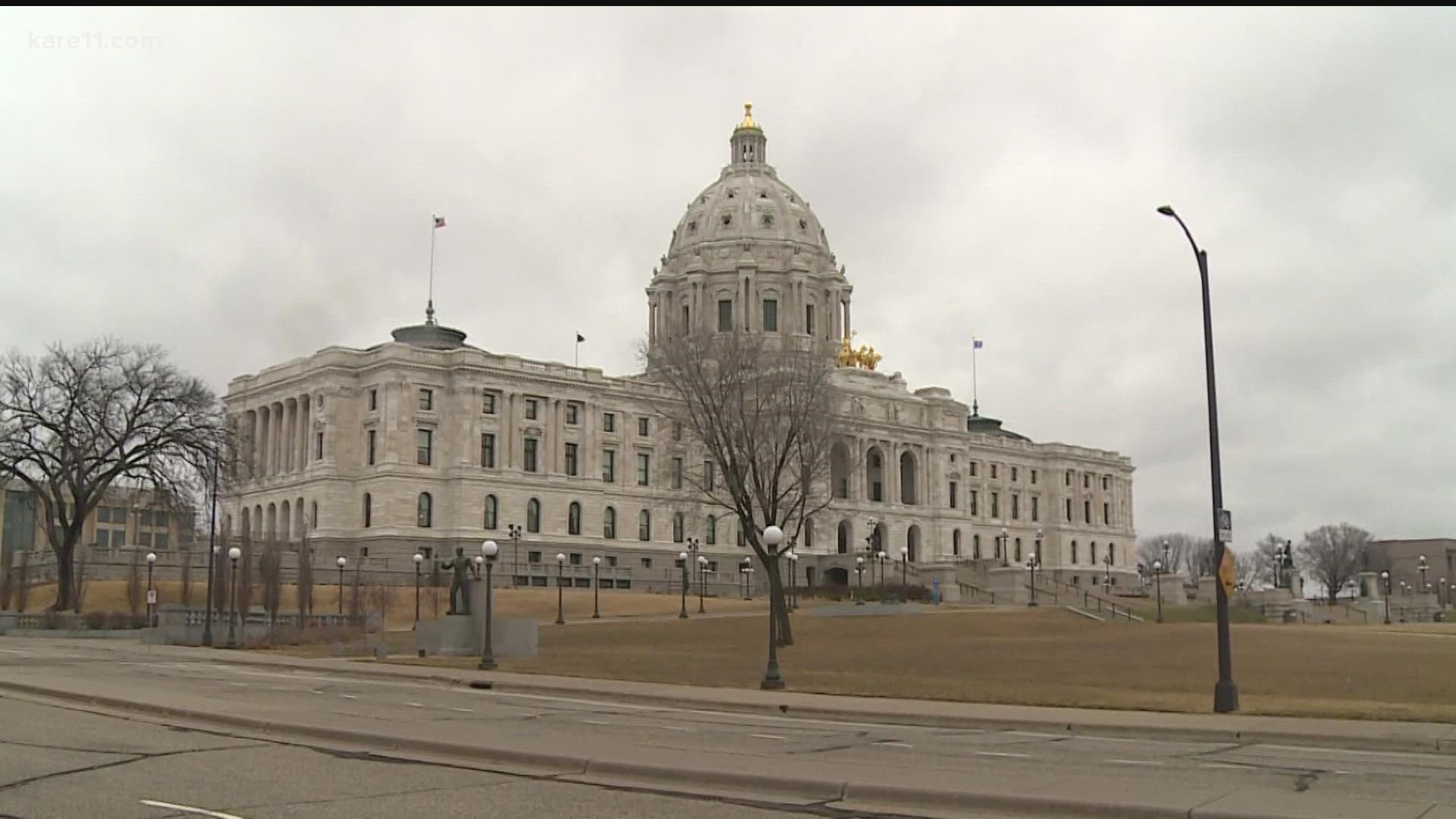ST PAUL, Minn. — Minnesota House Democrats are pushing ahead with a comprehensive public safety measure aimed at hiring more officers and providing more accountability at the same time.
The $150 million package includes state aid to cities to hire more officers and crime investigators. The bill also includes enough money to purchase body-worn cameras for every officer in the state and the media storage capacity needed for those files.
There's also money in the plan to help local communities bring on more co-responders such as social workers and other mental health professionals who can respond to some emergencies, freeing up officers for other calls.
"Everyone should be cautions when we’re talking about change, so that we can get it right. But that should not stop change," Rep. Carlos Mariani, the House Public Safety Committee Chairman, told reporters at State Capitol press conference Thursday.
"This bill creates an incredibly transparent, evidence-based, research-based, Minnesota values-based approach to be able to do that."
The legislation includes $55 million for grants for community crime prevention programs in the 20 counties and tribal communities with the highest violent crime rates. The Minnesota Office of Justice would continue to receive $30 million annually to help keep the crime prevention work on track.
"Our bill would establish a public safety innovation board composed of academics, crime victims, social workers, BIPOC advocates and law enforcement," Rep. Cedrick Frazier, the New Hope Democrat who is the chief author of the bill, explained.
"It allows local municipalities to empower civilian review boards to allow for investigations of complaints against officers. Officers shouldn’t be the only ones to review officer complaints."
Rep. Frazier's bill passed the Public Safety Committee Thursday afternoon and will likely pass the full House later this session.
St. Paul Mayor Melvin Carter appeared at the same event to endorse the legislation, saying it would go far to bolster the city's approach to crime prevention and public safety.
"It’s about making those proactive, targeted investments in youth jobs, violence intervention, alternative response mechanisms and other preventative strategies to improve public safety outcomes in all of our neighborhoods."
Mendota Heights Police Chief Kelly McCarthy, who also chairs the Minnesota Peace Officers Standards and Training Board, says departments will embrace the co-responder funding.
"Travis’s Law helped changed how we look at how we respond to mental health calls," Chief McCarthy said, referring to a bill passed in 2021 that requires dispatchers to send mental health crisis teams on mental health calls when they're available.
"In Dakota County since October we were able to divert 316 calls to social workers. Prior to Travis’s Law the first responder would’ve been a police officer. But now, thanks to that leadership of our social services and dispatch, we’re able to shift that to properly trained people who can respond infinitely better than I ever could."
It comes at a time of rising crime across Minnesota and the nation. For Minneapolis the need is critical because hundreds of officers took leave for PTSD and filed Workers Compensation disability crimes after the civil unrest that followed the murder of George Floyd.
House Speaker Melissa Hortman pushed back against the Republican narrative that Democrats haven't taken crime seriously.
"We’re aiming to address the root causes that lead to increases in violence, and we’re looking to allocate resources directly to law enforcement and community groups who work on the ground to prevent and solve crimes."
Senate Republicans have also proposed new spending for hiring and retention bonuses for officers. Unlike the Democrat, GOP lawmakers are also proposing tougher prison sentences for those who commit violent crimes.
In the past, most Republicans have opposed giving civilian review boards more power over officer discipline.

